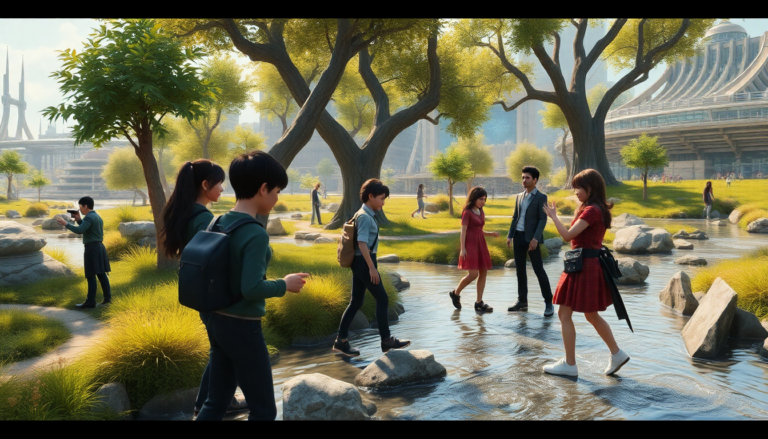Argomenti trattati
Imagine immersing yourself in a game where the characters think, adapt, and collaborate in ways that mirror human interactions. This isn’t just a sci-fi fantasy; it’s the reality brought to life by multi-agent systems in gaming. These advanced AI frameworks are changing the landscape of game development, making virtual environments richer and more engaging than ever before.
What are multi-agent systems?
Multi-agent systems (MAS) are collections of autonomous entities, or agents, that interact with one another and their surroundings. In gaming, these agents can represent characters, environmental elements, or even unseen assistants that enhance gameplay. They work in concert, akin to a team of skilled individuals, each contributing to a cohesive game experience.
One of the standout features of MAS is their ability to create dynamic game worlds. Picture exploring a vibrant forest where the flora and fauna emerge organically, rather than being pre-placed by developers. This phenomenon, known as procedural content generation (PCG), allows for a level of creativity and unpredictability that can significantly enhance player engagement.
The magic of procedural content generation
In essence, PCG acts as a digital artist, crafting unique gaming elements as players navigate the world. Instead of creating every detail manually, developers leverage algorithms that generate content on-the-fly. This process is akin to having an endless supply of original artwork, with each gameplay session offering something new.
When multi-agent systems are integrated with PCG, the results can be astonishing. Imagine a city-building game where one agent designs the road layout while another populates buildings with characters, all working together seamlessly. This level of collaboration among agents allows for the creation of intricate and logically sound game maps, enhancing immersion and player satisfaction.
Enhancing gameplay with intelligent opponents
Multi-agent systems also improve gameplay by providing smarter opponents. Unlike traditional AI that follows predictable patterns, agents within these systems can create complex strategies and adapt to player actions. In competitive games, this leads to a more challenging environment, pushing players to refine their skills and strategies.
Take, for example, strategy games like StarCraft II. Here, AI opponents utilize multi-agent systems to devise sophisticated battle tactics, manage resources, and even employ cunning strategies that mirror high-level human gameplay. This capability transforms the gaming experience, making each encounter unpredictable and thrilling.
Challenges and opportunities in development
Despite the advantages of multi-agent systems, developing these technologies is not without its challenges. One of the primary concerns is ensuring that agents can communicate effectively and maintain a balanced game environment. It’s akin to managing a team of diverse personalities; not everyone will get along, and some may need a little guidance to work together harmoniously.
Moreover, addressing issues such as performance bottlenecks and ensuring that agents operate efficiently as their numbers increase poses additional hurdles for developers. However, as research in this area progresses, the potential for creating more sophisticated and engaging gaming experiences continues to grow.
The future of gaming with multi-agent systems
As we look ahead, the integration of multi-agent systems into gaming is poised to revolutionize player experiences. Imagine stepping into a world where every character has a memory, where relationships evolve organically, and where ecosystems react dynamically to your actions. These innovations promise to blur the lines between player and game designer, inviting everyone to co-create unique adventures.
Furthermore, the possibilities extend beyond entertainment. Multi-agent systems are being explored in other fields, such as urban planning and healthcare, demonstrating their versatility and potential to solve complex problems. The gaming industry stands at the forefront of this technology, paving the way for a more interactive and immersive future.
In conclusion, as multi-agent systems continue to evolve, they will redefine how we experience games. The next time you dive into a virtual world, remember: you might be stepping into a space crafted by intelligent agents, each contributing to a story that unfolds uniquely with every play.

